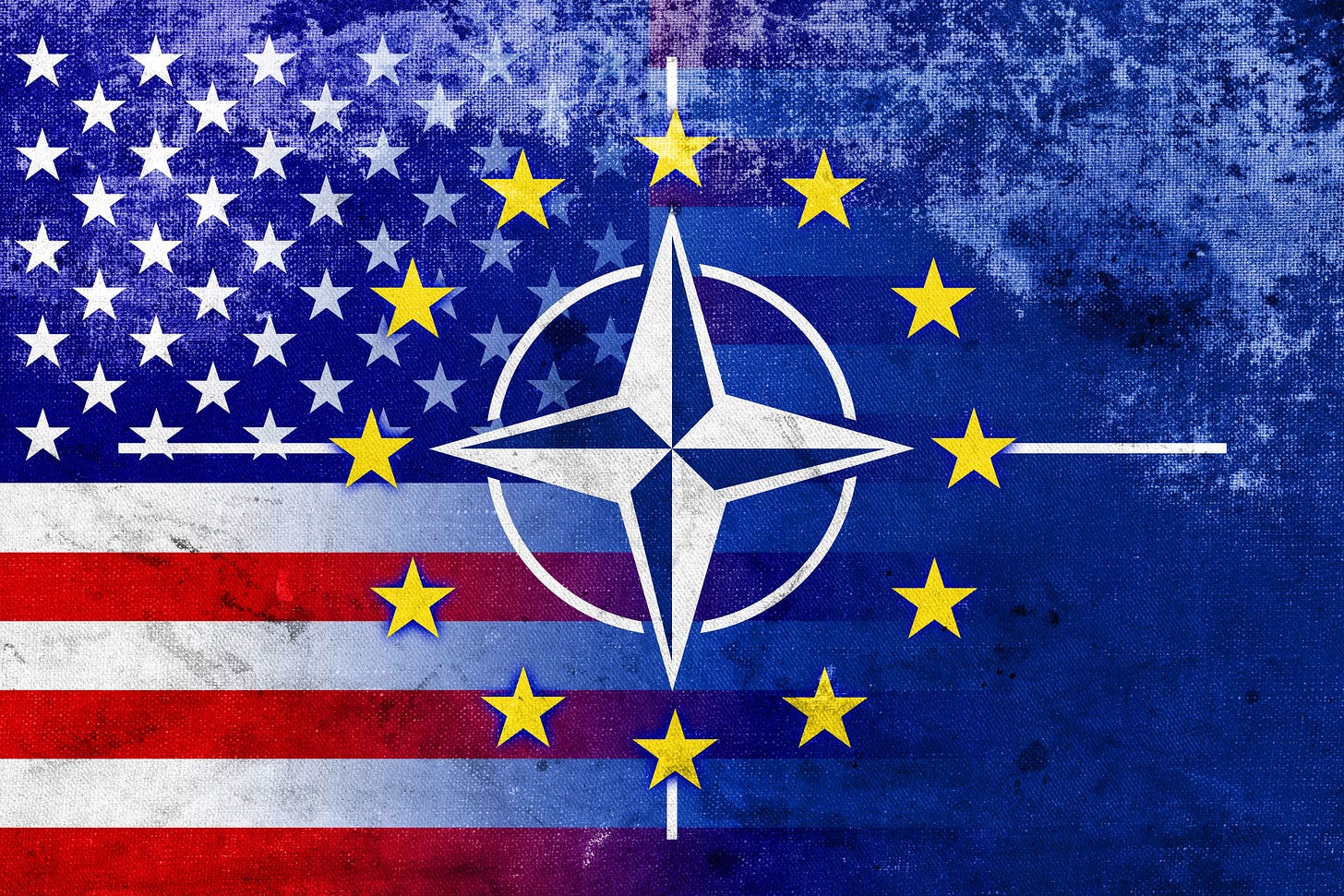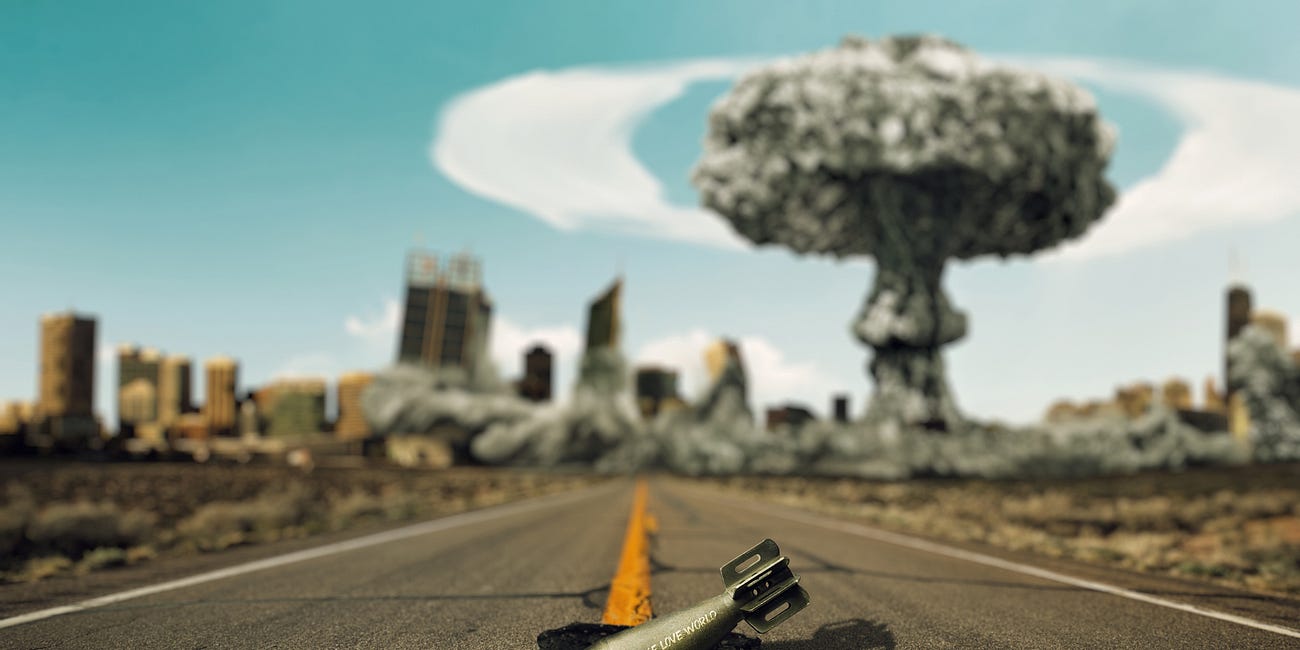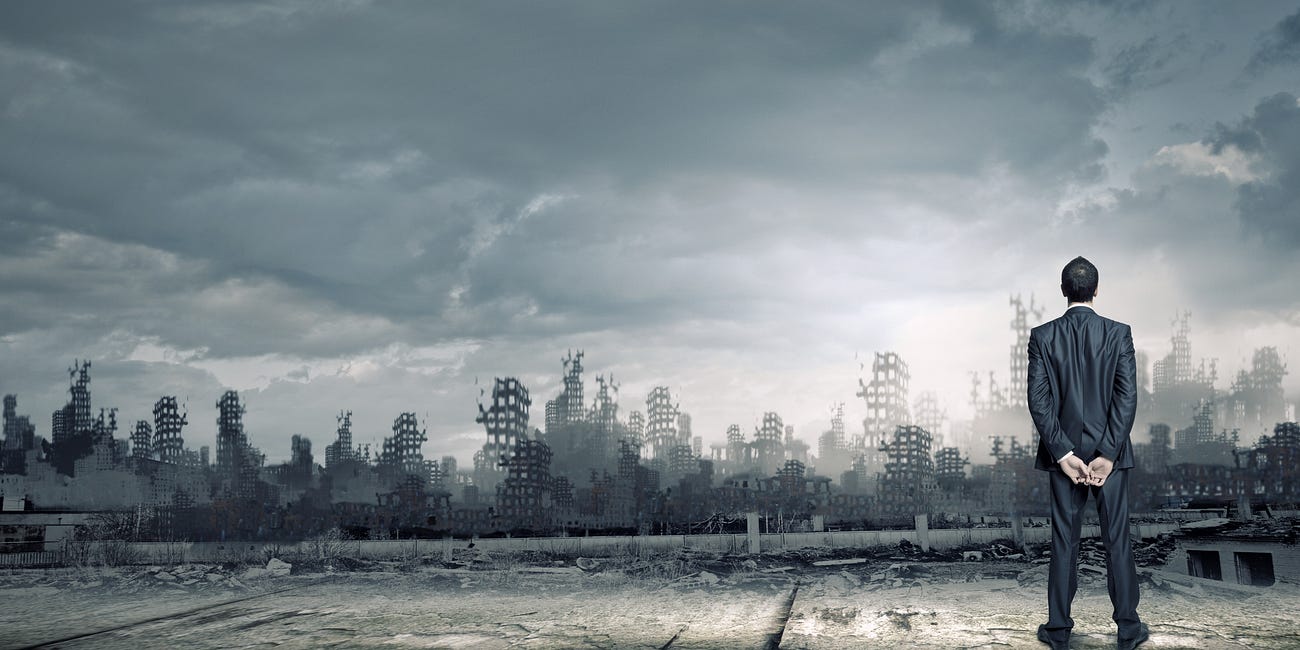“What is more important in world history? The Taliban or the collapse of the Soviet empire? Some agitated Moslems or the liberation of Central Europe and the end of the cold war?”1
— Zbigniew Brzezinski (1998)
It is October 2022. A proxy war between NATO and Russia is in its eighth month with tens of thousands dead and many more wounded and displaced. Entire towns and cities have been razed. For the first time since the end of the Cold War, there is serious discussion of the possibility of nuclear war.
Western leaders have pursued energy policies completely untethered both from the physical realities of nature and the consumption needs of modern civilization. They unlearned the immutable fact—an energy crisis is an everything crises. We now face winter knowing the energy shortfall will result, not only in cold and hunger across Europe, but also the widespread deindustrialization of Germany—the economic and financial powerhouse of the EU. Worse still, the energy and food crises are sure to result in famine in much of the developing world, particularly as wealthier countries will outbid others as supplies shrink.
Central bankers have engaged in ever bolder money-printing binges that inflated asset prices to all-time highs, further enriching the wealthiest segments of the wealthiest parts of the world. Attempts to deal with the resulting inflation sparked panic and freefall in financial markets. This, however, is only the latest episode in the intensifying boom-bust mania of recent decades. And the current episode will end with much greater financial destruction—there is no way around this fact.
Is this the end of the liberal international order or merely a dark moment in its history? How did the West sink to this low, particularly with no peer competitor? Surely, someone must be to blame but why has no one been punished? Not for the impossible volumes of debt present at all levels of society. Not for the Global Financial Crisis of 2008. Not for the many failed military misadventures. How the hell did the West get here?
For many reasons, 1998 is a noteworthy year in our story.
It was the final year of a long period in which NATO refrained from unilateral offensive operations.2 The following year, NATO attacked Serbia. 1998 was also the final year in which NATO contained none of its former foes from the Warsaw Pact nations. The following year, the Czech Republic, Hungary, and Poland all became members. Not long after, in 2004, another round of NATO expansion brought in other former Eastern Bloc states, as well as three former Soviet Republics.
Similar movements were afoot in 1998, as the EU began the long accession process for these same Central and Eastern European nations (all which joined the EU in the expansions of 2004 and 2007.) Also in 1998, the EU created the European Central Bank and, the following year, first introduced the euro.
The role of the US central bank, the Federal Reserve, also morphed in 1998. Most noteworthy, the “Fed” intervened to bail out a single company— the over-leveraged hedge fund known as Long-Term Capital Management, which had lost vast sums in risky investments and foreign financial crises. The Fed dramatically expanded both its willingness and its capabilities to engage in economic interventionism, all for the sake of systemic stability. The following year, the US Congress eliminated some of Depression-era restrictions of the Glass-Steagall Act, specifically those that limited interactions between commercial and investment banking. The move, according to then-President Bill Clinton, would “enhance the stability of our financial services system.”3
These changes in the Euro-Atlantic sphere were not spontaneous, of course. The necessary planning had been underway for some time, but these plans began to become realities in the late 1990s. Additional expansions and integrations continued thereafter, further solidifying the liberal international order with Washington DC at its helm. This period saw the greatest wealth creation in history as goods, ideas, and people flowed more freely around the world. Particularly for Europeans, integration was seen as a necessary hedge against the sort of wars that had long devastated the continent, and as an end to the fear and division of the Cold War. Such monumental changes appeared to reanimate Churchill’s goal that, “all Europe may be free and the life of the world may move forward into broad, sunlit uplands.”4
In 1998, however, the light of hope did not shine in Russia. That year brought a severe, pervasive financial crisis that included both a currency devaluation and a default on government debts. This catastrophe merely added to the misery that had become common, both for the people and their leaders. For instance, the country already had lost control of Chechnya after a failed, two-year military campaign to reassert Moscow’s authority over the breakaway republic. Chechnya was not the only place in which weak governance had led to widespread lawlessness—criminal gangs and newly minted oligarchs were the de facto authorities in much of the country. Russia did not share in the burgeoning Euro-Atlantic bounty of optimism and opportunity. But that moment in time was equally as pivotal for Russia. The following year, Vladimir Putin came to power.
There’s one last reason 1998 is a noteworthy year in our story. That’s the year I began my career, one that tracks the story of the West during this period. In rapid succession, I learned Russian, Serbo-Croatian, and Dari, not as part of some intentional plan, but in an effort to keep up with the shifting focus the Western foreign policy and defense establishment. I was told, “no one cares about Europe,” and found myself in Central Asia and the Middle East. Then, after 2014, Europe mattered once more, and I was back on the continent and in the former Soviet Union. In a subsequent twist, I found myself at the confluence of the East and South China Seas—Taiwan—where the local army was very interested in how Russia was able to seize Crimea.
I began life as a working-class kid who trusted the wisdom of his betters and the soundness of our institutions—I was naïve but earnest. Now that I’ve seen behind the curtain, I understand we are led by the architects of a failed interventionist worldview. In a bizarre celebration of this failure, these military and political leaders always graduate to ever greater positions of influence and wealth. They are little different and no better than the departing corporate executive who receives a golden parachute only after having run his company into the ground. This is how the West got here.
Other parts of this thematic series are found below:
Analysis: The Russia Ukraine Conflict
It is the afternoon of February 28, 2022 (EST). Four days earlier, Russian forces invaded Ukraine after a months-long military buildup along Ukraine’s borders. The United Nations General Assembly currently is in an emergency meeting to discuss the war. The following is my response to several questions from Poligage. In the interest of keeping this to a …
The Moon Is Serbian
“What are you saving this superb military for, Colin, if we can’t use it?” -Madeleine Albright to Colin Powell How many Westerners recall the last concentration camps in Europe were those of the 1990s, not the 1940s? The montage of European wars playing in the collective Western memory skips spottily from World War II to Ukraine. Hidden are the Balkan Wa…
Amateur-Hour Armageddon
A little over thirty years ago, a massive US-led coalition assembled in Saudi Arabia for what would become the Gulf War. In retrospect, it’s easy to forget the Iraqi military of this era was one of the largest in the world and possessed formidable air defenses. Serious military projections suggested the invasion to liberate Kuwait could cost tens of tho…
Rubble and Rhetoric
The war in Ukraine could go in one of two directions. I described the first in my last article, “Amateur-Hour Armageddon.” This would be for the West to continue escalating to the point of direct conflict with Russia, potentially ending in nuclear war, in which case all bets are off. The second option is for Russia to win decisively enough to set terms …
Niger and France
I often write about the degradation of Western military and defense industrial capabilities. Military overmatch, or at least the appearance of it, has been among the necessary tools to sustain the Western-led order of the post-Cold War period. We have seen cracks in this military façade for some time. Now we see them in the foundation. A case in point is…
https://dgibbs.faculty.arizona.edu/sites/dgibbs.faculty.arizona.edu/files/afghan-ip.pdf
NATO’s air campaign during Operation Deliberate Force in 1995 was at the request of the United Nations Protection Force.
https://www.presidency.ucsb.edu/documents/statement-signing-the-gramm-leach-bliley-act
https://winstonchurchill.org/resources/speeches/1940-the-finest-hour/their-finest-hour/









